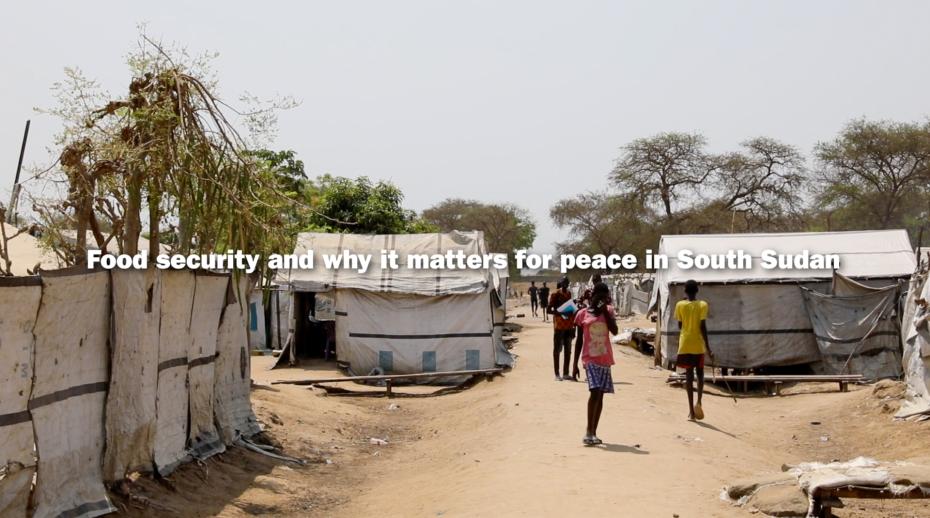
SIPRI is pleased to launch a new film about the complexity of the food security crisis in South Sudan and the efforts needed to build stability and peace in a context of climate change impacts and intercommunal violence.
The film ‘Food security and why it matters for peace in South Sudan’ is part of the wider knowledge partnership between SIPRI and the World Food Programme (WFP), which aims to strengthen WFP’s contribution to achieving peace in the countries where it works.
In September, SIPRI released a series of video interviews with local people and humanitarian workers in South Sudan’s Jonglei State, exploring their perceptions of food security, violence and development challenges. ‘Food security and why it matters for peace in South Sudan’ mixes extracts from those interviews with new footage and graphics.
Watch the film and Spotlight interview series on SIPRI’s YouTube channel.
South Sudan gained independence from Sudan in July 2011. Since then, the people of South Sudan have suffered violence from different sources. Every state and administrative area of the country faces its own constellation of human security challenges. In Jonglei State, particularly in a swampy lowland area called the Sudd, the population is experiencing a catastrophic combination of intercommunal violence, food insecurity, climate change impacts, political turmoil and underdevelopment.
‘Food security and why it matters for peace in South Sudan’ highlights the critical role that humanitarian organizations play in providing food and essential services, especially in conflict-affected areas and those impacted by drought, floods and other climate-related hazards.
The film closes with thoughts from interviewees about how to build resilience and move from emergency response to development in order to break the cycle of violence, poverty and displacement for the people of Jonglei.
About the SIPRI–WFP knowledge partnership
The pillars of the SIPRI–WFP knowledge partnership include improving the evidence base for the relationship between food and security; operationalizing findings in current and future programmes—particularly those in pursuit of Sustainable Development Goal 16; and developing policy that clearly articulates WFP’s contribution to sustainable peace and conflict prevention. The research for Phase I of this partnership visited four case study countries—El Salvador, Iraq, Kyrgyzstan and Mali—and produced initial findings in June 2019. Research in Phase II has been broadened to incorporate new countries, including South Sudan, and deepened through a focus on five thematic areas: stabilization, climate change, gender, cash-based programmes and measurement. Read more about SIPRI’s Food, Peace and Security Programme.